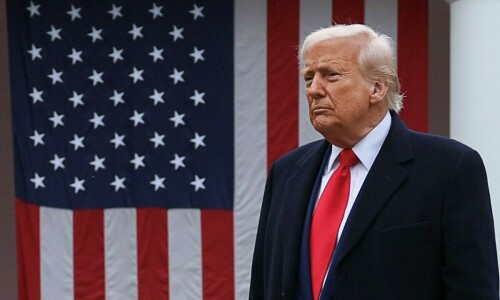In Colombo, next month’s presidential election seems like a one-horse race, with giant posters of the incumbent, Mahinda Rajapakse, plastered all over town. Such is the prerogative of power.
Then, of course, there is the power of patronage: government officials have been presented with free motorcycles; others have received large pay hikes; and a friend who owns a small hotel recently got a 25 per cent rebate in his water bill. And that’s only the tip of the iceberg. The president and his election machine still haven’t moved to high gear, and are likely to use every trick in the book to win.
Thus, it would seem combined opposition candidate Maithripala Sirisena’s chances of causing an upset are as remote of a snowflake’s prospects of surviving in hell. But surprisingly, many observers think this will be a close fight. Sirisena himself would appear to be damaged goods, having walked out of the ruling SLFP as health minister a few weeks ago. But already, he has attracted considerable support: not only have 10 members of the SLFP bailed out to join the opposition campaign, but 36 other political parties and civil society groups have signalled their support for Sisisena.
Significantly, these include JHU, the virulently nationalist, hard-line Buddhist party. The arithmetic of the election is such that if the opposition can garner the Tamil and Muslim votes, plus a third of the Buddhist vote, they can defeat the incumbent. To do this, Sirisena has to pander to the nationalists by signing on to their agenda. However, this move might alienate both the Tamils and the Muslims, both of whom have been at the receiving end of Buddhist extremism.
Indeed, he has also given an assurance that should he win, he will not allow a UN enquiry into allegations of war crimes against Tamil civilians at the end of the civil war four years ago that continue to haunt this government and its defence forces. Many Sri Lankans are still in denial, having bought into official propaganda that charges of atrocities are part of a Western plot to defame their country.
But one of Sirisena’s more popular pledges is his determination to end Sri Lanka’s executive presidency. This constitutional change, introduced by J.R. Jayawardene in 1978, conferred enormous powers to the president; powers used to great, if controversial, effect by Mr Rajapakse. But opposition parties have chafed under this weakening of parliament, and want to bring the old system back so a prime minister once again becomes answerable to the house.
This is probably why the leader of the opposition, Ranil Wickremsinghe, is not running for president: if and when the 1978 amendment is struck down, the president will once again be a figurehead. So Ranil, as he is popularly known, would much rather be prime minister. In any case, his performance during his years of opposition has been deeply disappointing, and he is widely suspected as having danced to Rajapakse’s tune.
Apart from war crimes charges, the Rajapakse government — and family — are struggling with allegations of corruption on an industrial scale. Currently, one brother of the president is Gotabaya, said to be the second most powerful man in the country. As defence secretary, he directed the final offensive against the Tamil Tigers, and therefore will be held responsible should an impartial enquiry ever be held into the final days of the civil war. He is also in charge of urban development, and thus in a position to approve (or reject) proposals for major projects and deals.
The speaker of the assembly is another Rajapakse brother, while a fourth has a ministerial portfolio. The president’s son was elected to parliament from the south, and is very active politically. Scores of members of the clan are spread across the bureaucracy. So the family is well represented in government, and is alleged to have profited mightily from Rajapakse’s incumbency.
In this context, a southern ruling party MP’s remarks are highly revealing for their bluntness. He is reported to have advised voters to support the SLFP because, as he put it: “We have made enough money not to be greedy next time. But if you elect the opposition, they will make money hand over fist.”
Over the years, Rajapakse has reduced buying the opposition to a fine art. He simply offers MPs ministerial portfolios and other lucrative posts, and as all ministers are allowed to import one duty-free car per year, they can make a lot of money in a country where duties on luxury cars can reach 350pc. To increase the number of portfolios, ministries have been divided into smaller and smaller departments.
So when 10 ministers crossed over to the opposition, they must suspect that the government has grown unpopular. And it is a fact that despite having ended the war, Rajapakse has lost some of his appeal. This is partly due to rising prices; and the sight of one family enriching itself has not endeared the president to his base. Nevertheless, his unrelenting focus on improving the road network and spreading motorways across the island has certainly been a big plus.
Several Sri Lankans have said to me that they consider all politicians to be corrupt, “but at least Rajapakse has done something for the country.” This sentiment may carry the incumbent across the finishing line next month. The decision to hold this election two years before it was due was probably taken to cash in on the president’s residual popularity.
Nevertheless, many fear violence in the coming days as the campaign heats up. Despite Sirisena’s wooing of the nationalists, Tamils are expected to vote for him, so suppressing their votes could be a possible tactical move. This would not be difficult as the army is already in the north of the country in considerable strength.
Whatever the outcome, the next month will be interesting in Sri Lanka.
Published in Dawn December 8th , 2014












































